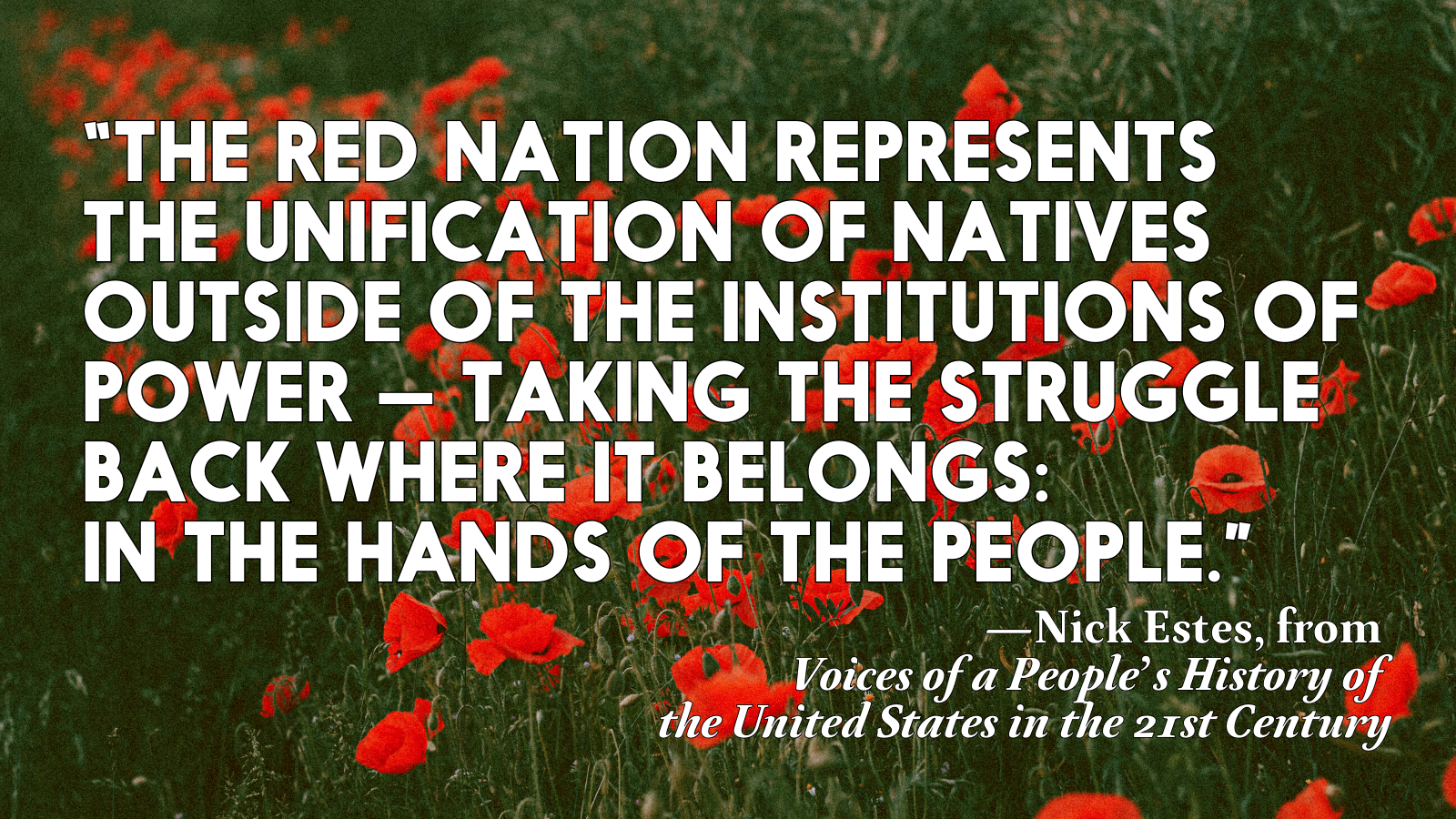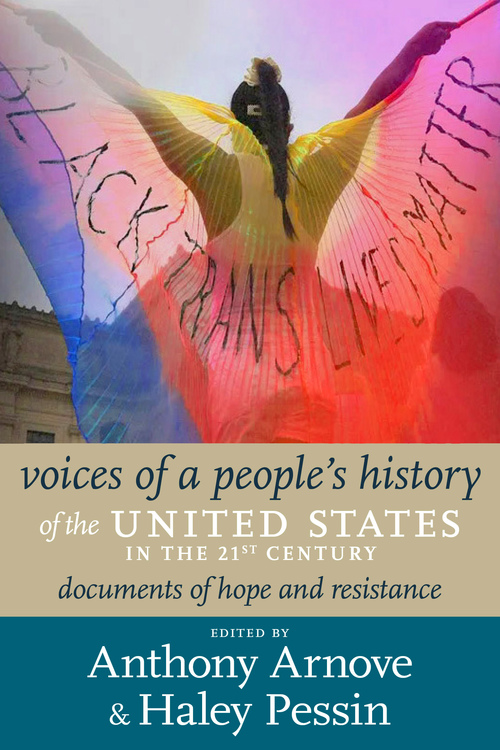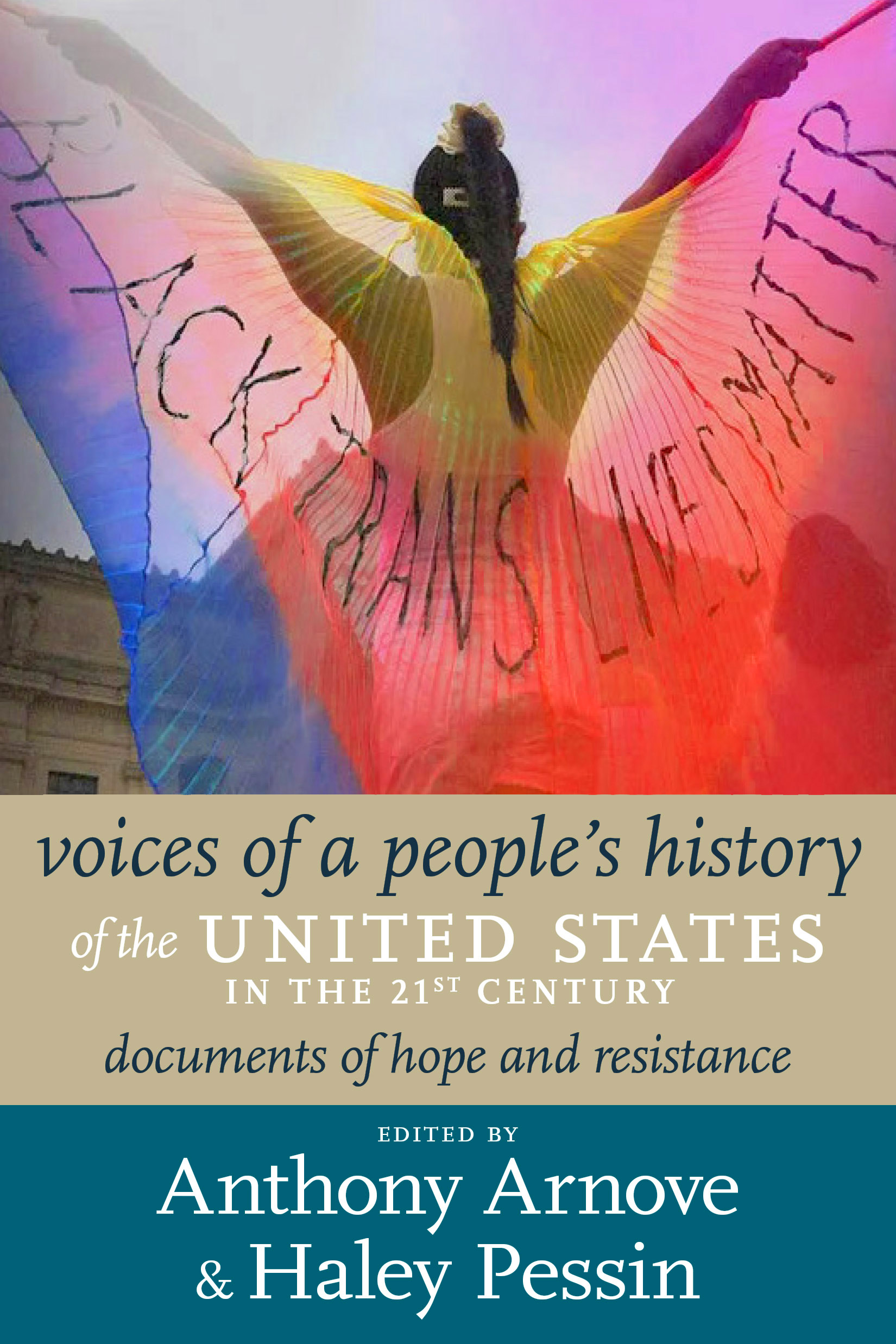Twenty-first century social movements come to life through speeches, essays, and other documents of activism, protest, and social change.
Gathering more than 100 texts from social movements that have shaped the 21st century, this powerful book includes contributions from Angela Y. Davis, Nick Estes, Colin Kaepernick, Rebecca Solnit, Christian Smalls, Viet Thanh Nguyen, Howard Zinn, Rev. William Barber, Bree Newsome, Kimberlé Crenshaw, Tarana J. Burke, Dream Defenders, Sins Invalid, Mariame Kaba, Naomi Klein, Keeanga-Yamahtta Taylor, Linda Sarsour, Chelsea E. Manning, Chrishaun “CeCe” McDonald, Julian Brave NoiseCat, H. Melt, and others.
Inspired by the original Voices of a People’s History of the United States, this new book features speeches, essays, poems, and calls to action from Black Lives Matter, #MeToo, Indigenous struggles, immigrant rights activists, the environmental movement, disability justice organizers, and frontline workers during the global pandemic who spoke out against the life-threatening conditions of their labor. Together, their words remind us that history is made not only by the rich and powerful, but by ordinary people taking collective action.
Voices of a People’s History of the United States in the 21st Century offers inspiration for those seeking to understand our recent history in order to change it.
Collected in
New and Forthcoming Books from Seven Stories Press“Native Liberation: The Way Forward” by Nick Estes
With the forthcoming publication of Voices of a People’s History of the United States in the 21st Century, a new collection edited by Anthony Arnove and Haley Pessin, we are proud to share a series of excerpts from the book, which will be published individually each week on the Seven Stories blog until the book's release.
This week's excerpt adapts Nick Estes' is speech from the first annual Native Liberation Conference, held on Saturday, August 13, 2016 at the Larry Casuse Center in Albuquerque, New Mexico. The stated goal of this conference, organized by The Red Nation, is to "orient, update, and educate the collective membership of The Red Nation and general public on local, regional, and international movements for Indigenous liberation."
A new companion to the classic collection edited by Howard Zinn and Anthony Arnove, Voices of a People’s History of the United States in the 21st Century brings together more than 100 activist texts on social and economic justice that have shaped the last 22 years. The editors, Arnove and Pessin, offer a curated collection of voices of hope and resistance from Black Lives Matter, #MeToo, the struggle for Indigenous liberation, activist groups for immigrant rights, environmentalist movements, disability justice organizing, and frontline workers during the global pandemic who spoke out against the life-threatening conditions of their labor.
Included in this new book are writings by Angela Y. Davis, Nick Estes, Colin Kaepernick, Rebecca Solnit, Christian Smalls, Viet Thanh Nguyen, Howard Zinn, Rev. William Barber, Bree Newsome, Kimberlé Crenshaw, Tarana J. Burke, Dream Defenders, Sins Invalid, Mariame Kaba, Naomi Klein, Keeanga-Yamahtta Taylor, Linda Sarsour, Chelsea E. Manning, Chrishaun “CeCe” McDonald, Julian Brave NoiseCat, H. Melt, and others. Together, their words remind us that history is made not only by the rich and powerful, but by ordinary people taking collective action.



_francesca_ruggiero_and_eric_soucy-f_feature-1f8b38763194696ed9b008bfb51b65f8.png)
_francesca_ruggiero_and_eric_soucy-f_feature-c9f257df6eb260cde8da264b9bdd44b2.png)


